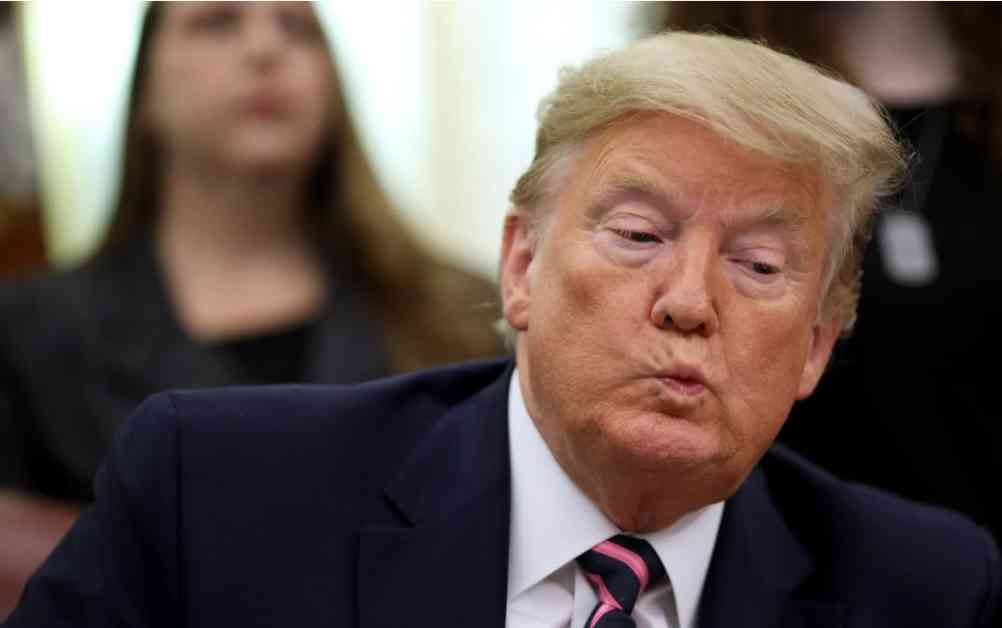As world leaders gathered at Munich’s Bayerischer Hof in February 2025, a sense of unease permeated the atmosphere, reminiscent of past historical events. Since 2022, the focus of the world’s premier security conference has been on addressing Russian aggression in Ukraine. However, during this particular conference, Western unity appeared to be unraveling, mirroring the dangerous divisions that preceded one of history’s most catastrophic appeasement agreements.
Vice President J.D. Vance surprised European allies by shifting attention from Russian aggression to criticizing Europe’s supposed democratic decline. This move echoed pre-WWII America’s aversion to European involvement. Furthermore, Trump’s special envoy Keith Kellogg exacerbated tensions by asserting that the US had no intentions of physically including European representatives in negotiations with Russia.
The controversy escalated when reports emerged that the Ukrainian delegation had been pressured into signing a vague minerals agreement simply to meet Vance on the sidelines of the conference. To add fuel to the fire, the Trump administration disclosed that US-Russian talks were scheduled to take place in Saudi Arabia without involving Kyiv, sparking concerns that Trump’s highly anticipated peace deal might not only sideline Europe but also Ukraine itself.
This power play observed at the 2025 Munich Security Conference bore a striking resemblance to the disastrous “peace in our time” appeasement of Hitler in 1938 — a diplomatic misstep that led to tragic consequences and painted a grim picture of the future.
Dealing Peace and the Surrender of Victims
On September 30, 1938, British Prime Minister Neville Chamberlain and French Premier Édouard Daladier signed a pact with Hitler, enabling Germany’s annexation of Czechoslovakia’s Sudetenland in a desperate attempt to halt Hitler’s unchecked expansion. This infamous agreement marked the culmination of years of Hitler systematically dismantling post-WWI security protocols. By the spring of 1938, Hitler had already absorbed Austria and set his sights on Czechoslovakia, using propaganda to manipulate the German diaspora in Sudetenland to justify his actions.
Hitler’s expansion, masked as a quest for peace and protection of Germans, culminated in a mockery of a Nobel Peace Prize nomination just months before the outbreak of WWII. The meticulously planned strategy led to growing tensions within Czechoslovakia as the Sudeten Germans, with Hitler’s support, demanded autonomy and advocated for reunification with Germany.
The Munich Agreement’s devastating impact resulted in the loss of a significant portion of Czechoslovakia’s territory, population, industrial capacity, and border defenses, leaving the nation vulnerable and weakened. Chamberlain’s infamous declaration of “peace in our time” was short-lived as Hitler swiftly violated the agreement, transforming Czechoslovakia into a Nazi puppet state.
Deciding Nations’ Futures Behind Closed Doors
Czechoslovakia, under the leadership of President Edvard Beneš, valiantly resisted Nazi aggression. However, the country found itself abandoned by Britain and France, who, eager to avoid another war, made a deal with Hitler behind Czechoslovakia’s back. The Munich Agreement was signed without Czechoslovakia’s involvement, leaving the nation defenseless against Hitler’s territorial demands.
Britain and France’s pact with Hitler sealed Czechoslovakia’s fate, forcing Beneš to accept the surrender of Sudetenland to Germany or face the wrath of the German army alone. With no other options, Beneš reluctantly signed, leading to the country’s disintegration and eventual occupation by the Nazis.
The betrayal of Czechoslovakia by its allies and the decisions made behind closed doors underscored the catastrophic consequences of appeasement and the dire repercussions of abandoning nations in times of need.
Great Deals and Broken Promises
The Munich Agreement, which permitted Hitler’s annexation of the Sudetenland unopposed, sent a clear message to authoritarian regimes that the West was feeble. Japan, seizing the opportunity, expanded aggressively in Asia, confident that it would encounter little resistance due to Europe’s vulnerability. The West’s appeasement in Europe emboldened Japan, ultimately leading to alliances with Nazi Germany and Fascist Italy.
The United States, faced with Japan’s expansionist ambitions threatening its trade routes, shifted its focus to Moscow in an attempt to deter Japan and bolster its economy. Roosevelt’s decision to engage with the Soviet Union, marking a significant departure from past policies, inadvertently fueled Soviet industrialization and geopolitical power.
The Munich Agreement’s repercussions extended beyond Europe, shaping global power dynamics and paving the way for the rise of authoritarian regimes in Asia. The lessons learned from history underscore the critical importance of standing firm against aggression and avoiding the pitfalls of appeasement.
As the world navigates through complex geopolitical challenges, the echoes of past mistakes serve as cautionary tales, urging leaders to prioritize unity, resolve, and foresight in the face of looming threats. The events of the 2025 Munich Conference underscore the critical need for vigilance and a steadfast commitment to upholding democratic values and international security. The shadows of history loom large, reminding us of the high price paid for complacency and shortsightedness.

















